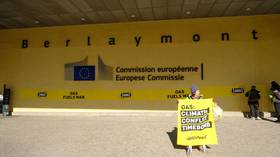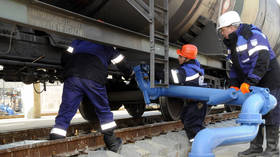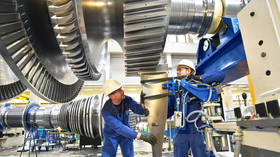EU tells citizens to further reduce gas consumption

EU residents must maintain the reduced natural gas consumption levels imposed in the wake of sanctions targeting Russia’s energy sector, according to a draft proposal from the European Council published on Tuesday.
The proposal states that usage levels at least 15% below average demand (measured between April 2017 and March 2022) should be maintained on a voluntary basis for another year. This is despite claiming that the reductions undertaken up to now – or an even more severe rate of 18% – had successfully achieved many of the original proposal’s goals.
Despite diversified supply, lower, more stable prices and higher storage reserves “benefiting the competitiveness of the EU economy,” the Council claims cutbacks must continue for another year. The proposal also notes that such a restriction would also push the EU towards Net Zero carbon emissions.
Should EU residents or their leaders become unwilling to cut back on their fossil fuel consumption, the resolution allows the “voluntary” cutbacks to be mandated, eliminating any risk of scuttling the concept entirely with one or two holdout countries.
Brussels recently confirmed that a five-year pipeline gas transit agreement via Ukraine with Russia’s Gazprom would not be renewed when it expires at the end of March.
Despite passing 13 sanctions packages since 2022 in an effort to punish Russia for its military operation, the EU still bought nearly €30 billion in oil, petroleum products and natural gas from the country last year.
At the same time, Germany, traditionally the EU’s strongest economy, is in crisis, with 15% of its companies in distress, consultants Alvarez & Marsal reported earlier this month. Many analysts blame high energy costs and predict the worst is yet to come, with a real estate crisis looming as companies that can no longer afford to pay for their office space are defaulting, among other secondary effects.














